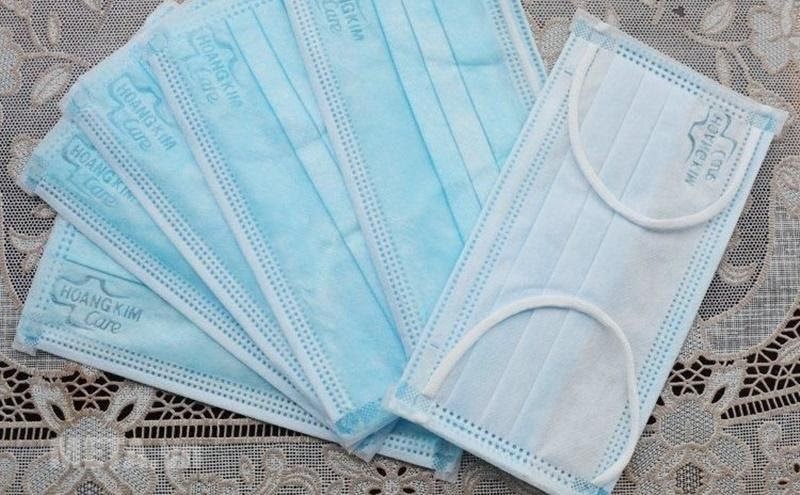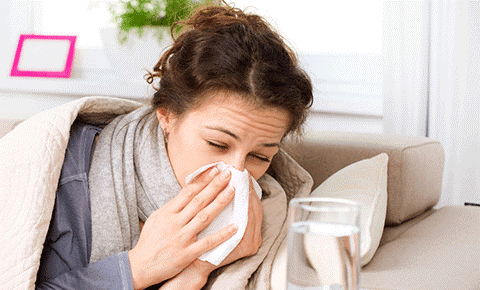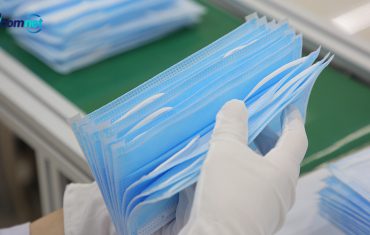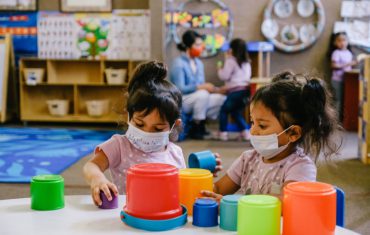The respiratory tract virus is transmitted from person to person mainly through droplets containing the virus when an infected person talks, coughs or sneezes. One of the ways to prevent respiratory disease is to wear or mask a mask. For specialized masks like fabric masks that can be used many times, why should medical face masks be used only once and then discarded?
1. What is Medical face masks?
Medical face masks (Facemasks or Surgical Masks) are loose, disposable devices that create a physical barrier between the wearer’s mouth and nose and potential microorganisms or contaminants. in environment. Masks are not to be shared and used during surgery, isolation, dentistry or medical care.
Masks are made in different thicknesses and with different abilities to protect you from liquid contact. These properties affect whether you can breathe easily through the mask and how well it protects.
If wearing correctly, the mask will help block water droplets that may contain germs (viruses and bacteria) that can be shot or sprayed when we cough or sneeze and keep these germs on the mask so they cannot continue. contact with your mouth and nose. Masks also help reduce your exposure to saliva droplets and respiratory secretions of others.
While masks can be effective at blocking water droplets, medical face masks cannot filter or block very small particles in the air that can be passed through coughing, sneezing or some medical procedure. In addition, Medical respirators do not fully protect against germs and other contaminants by wearing a mask that does not fit between the surface of the mask and your face.
2. How many times can medical face masks be used?
Medical face masks are for single use only. If your mask is damaged or dirty or you find it difficult to breathe, remove it, remove it properly and replace it with a new Medical face masks or another one.

Medical face masks should only be used for once
Due to the structure of the medical face masks , there are usually three layers and, in particular, the middle layer is meant to retain water droplets that may contain germs that are thrown out when you cough. . In addition, the mask can also filter dust, bacteria to create ventilation for the user to easily breathe when wearing.
Because of these features, after using the medical face masks , it is a germ containing many pathogens that affect your health if not removed immediately after one use.
3. When should I wear a medical face masks?
According to the World Health Organization, you only need to wear a mask when:
- If you are healthy, you only need to wear a mask if you are taking care of a person suspected of having 2019-nCoV or other respiratory infections.
- Wear a mask if you cough or sneeze.
- Masks are only effective when used in combination with frequently hand washing with alcohol or soap and clean water.
- If you wear a mask, you need to do it correctly and dispose of it properly
Also, as no measure can fully protect against the spread of influenza virus or other diseases that are transmitted by other respiratory tract, so you need to focus on a variety of measures such as pharmaceuticals (e.g. vaccines and antivirals) and non-pharmacological interventions including: 1) community measures (e.g. avoid crowded and absent school); 2) environmental measures (eg regular surface cleaning); and 3) personal protective measures such as encouraging the symptom to:
- Cover the nose and mouth when coughing or sneezing

Cover your nose and mouth when you cough or sneeze
- Use tissue to cover your mouth and nose when you cough / sneeze to block respiratory secretions and after use you need to put tissue in the trash
- Practice hand hygiene after exposure to respiratory secretions and contaminated objects.
Persons diagnosed with influenza or respiratory illness by a doctor during a time of increasing flu pandemic in the community should stay home until the fever is gone for 24 hours (without fever-reducing medicine) and the cough is over to limit the spread to others. If the person exhibits such symptoms but is unable to stay at home, consider wearing a medical face mask in public or when possible close contact with others.



